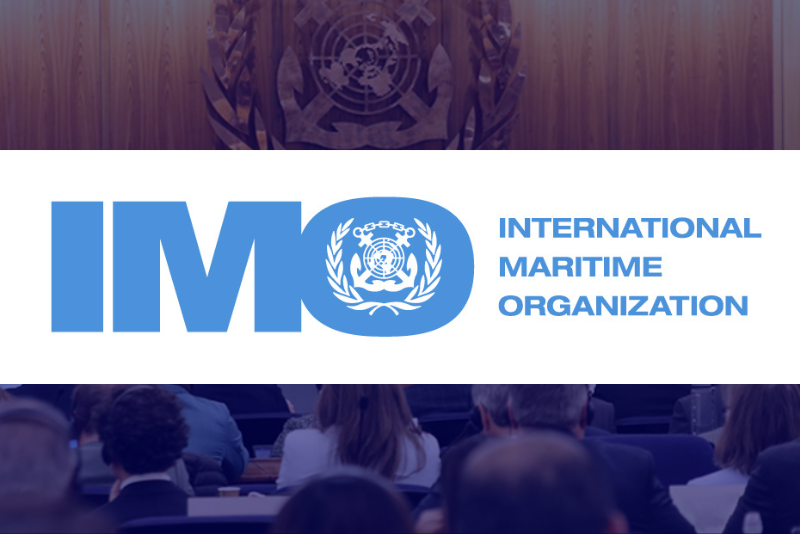
OAN Commentary by: Darren Brady Nelson
Monday, October 27, 2025
The usually low-profile IMO (International Maritime Organization) was scheduled to make an unusually high-profile decision on October 17th. The question at hand was whether or not to adopt a “greenhouse gas (GHG) emissions pricing mechanism” for shipping under their Net-Zero Framework (NZF).
However, on that same date, the member nations voted “to postpone for one year the adoption,” with 57 for, 49 against, and 29 abstaining. The U.S., Singapore, and Saudi Arabia led the way for a delay. Supposedly, “many developing countries” described this as “undiplomatic” “bullying.”
When it comes to so-called ‘climate action,’ the UN has a strong track record of not giving up. The IMO will probably wait and see which way the political winds blow over the next twelve months before once again pursuing their carbon tax on international shipping.
IMO asserts that the NZF pricing mechanism “has been widely mischaracterized as a global carbon tax.” The Trump administration is thankfully not buying what the IMO is selling, nor are many conservative media commentators and think tanks, whether Trump-friendly or not.
In a joint statement on October 10th by U.S. Secretaries Rubio, Wright, and Duffy: “The Administration unequivocally rejects … the UN’s First Global Carbon Tax … an unsanctioned global tax regime.”
Advertisement
All that is bad enough, but IMO is also at odds with President Trump’s 47 executive orders on Unleashing American Energy, Restoring Gold Standard Science, and Restoring America’s Maritime Dominance.
High-profile economist Stephen Moore penned, “The resolution is intended to advance the very ‘net zero’ carbon emissions standard…American voters have rejected.” And, “Since when are American businesses subject to international taxes imposed by the UN?”
The Wall Street Journal editorial board opined: “This is the first instance…of the UN claiming the ability to levy a tax — the revenues from which will be paid directly into a UN-controlled fund. For the UN system, as a whole, roughly 90% of revenue comes from governments.”
A report by Shuting Pomerleau of the American Action Forum outlined much of the details, like: “a two-tiered tax rate mechanism … two-tiered fuel standard divides vessels into three levels of tax liability … three ways in which shipping companies can pay[.]”
American Enterprise Institute’s Brett Schaefer also pointed out: “Over 90% of the current global fleet uses conventional fuels and cannot utilize greener alternatives. Consequently, fuel costs are projected to rise by 350% … and consumers will bear the brunt of the price.”
IMO’s scheme fits the Tax Foundation’s definition of tax, “a mandatory payment or charge collected by … governments from … businesses to cover the costs of general government … activities,” and carbon tax, “a price on [GHG] emissions to encourage … businesses … to produce less of them.”
And the IMO has not just ‘gone green’ and ‘climate alarmist’ in recent years. They have been moving in the latter direction for years, and in the former direction for decades.
IMO was established between 1948 and 1958 with “a focus on safety,” which it was until 1967. Their focus then shifted to “protecting the marine environment” from 1973 to 1978, and then since 2011 to 2015 to “tackling the climate crisis.”
In 2011, “the first set of international mandatory measures to improve ships’ energy efficiency were adopted” by the IMO, followed by their commitment in 2015 “to take urgent action to combat climate change and its impacts … to cut GHG emissions which cause global warming.”
IMO explicitly started to equate, or conflate, “energy efficiency” with “cut GHG emissions” in the “Initial IMO GHG Strategy” of 2018. It “envisages … a [total annual] reduction … at least 50% by 2050 compared to 2008 [as well as] pursuing efforts towards phasing them out entirely.”
The “Revised IMO GHG Strategy” of 2023 “includes indicative check-points for international shipping to reach net-zero GHG emissions for 2030 (by at least 20%, striving for 30%) and 2040 (by at least 70%, striving for 80%) compared to 2008.”
The 2023 strategy “emphasizes capacity building, technical cooperation, and research and development.” But the 2025 framework “refers to a new set of international regulations aimed at reducing GHG emissions from ships [of a] global fuel standard [and] pricing mechanism.”
A “comprehensive impact assessment” (CIA) was also considered in 2024. However, this did not include any risk analysis (RA) nor any cost-benefit assessment (CBA), unlike what is required, for example, in a Formal Safety Assessment (FSA) for use in the IMO rule-making process.
Sound CBA, that includes proper RA, is the ‘gold standard’ in economics to properly judge any proposed new tax or regulation. This is best done by using a ‘red teaming’ approach in order to try to counter the ‘bootleggers and Baptists’ within the IMO and without.
The 2024 CIA did include some elasticity analysis, but “one primary gap arises from the need for robust historical or empirical evidence within the shipping domain … the varied elasticities observed across different countries, commodities, types of vessels, and travel distances.”
As even a pro-carbon tax researcher reminds, “the reaction of producers [like international shippers] and consumers to changing prices depends on price elasticities of supply and demand … furthermore determines the incidence of carbon taxes on [them].”
IMO has been ‘captured’ by energy ‘bootleggers’ and climate ‘Baptists’ and is now part of the globalist ‘deep state.’ They have slightly delayed, but will not abandon, their grandiose climate vision for 2050.
Thus, the one-year pause on a global shipping carbon tax, to quote Rick and Morty, “just sounds like slavery with extra steps.” Therefore, one way or another, “hey ho, IMO has gotta go!”
(Views expressed by guest commentators may not reflect the views of OAN or its affiliates.)
________________________________________________________________________________________
Darren Brady Nelson is a senior economist with the Committee for a Constructive Tomorrow (CFACT).
What do YOU think? Click here to jump to the comments!
Sponsored Content Below

